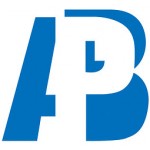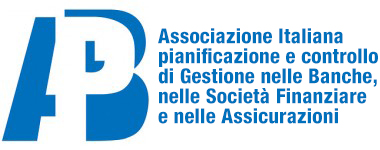
da Maineri Bruno | Gen 18, 2017 | Compliance
Banking Compliance Survey 2016
Compliance Officer: un ruolo in continua evoluzione nell’organizzazione delle Banche.
Il ruolo del Compliance Officer nelle realtà bancarie europee sta osservando un continuo percorso di cambiamento, evolvendo sempre più – anche a seguito della crisi finanziaria e delle risposte regolamentari locali e globali – verso logiche manageriali di advisor delle funzioni di business e degli Organi aziendali.
The next big leap: Forging a more effective and influential compliance function.
L’evoluzione del ruolo del Compliance Officer e della funzione di conformità rappresenta il tema chiave che emerge dalla Banking Compliance Survey 2016, basata su interviste condotte ai Compliance Officer dei principali Gruppi Bancari europei, che hanno toccato molteplici aspetti del funzionamento della funzione.
Testo della ricerca
Esplora i dati
da Maineri Bruno | Gen 18, 2017 | Regolamentazione e norme
By Lisa Lambert | WASHINGTON
Wells Fargo’s phony account scandal has spurred a top U.S. bank regulator to count sales practices as a chief risk to the country’s banking system and to embark on a wide-sweeping review of large and mid-sized institutions.
In a half-yearly report on threats to banks, the Office of the Comptroller of the Currency on Thursday said it now counts “governance over sales practices as a key risk issue.”
The office, along with other regulators, has been looking at bank sales practices since it penalized Wells Fargo (WFC.N) in September for $185 million for years of allegedly opening ghost credit-card and bank accounts in customers’ names or convincing customers to add unnecessary accounts.
This is the first time the OCC has deemed sales practices a key threat, putting them on the same level as hacking, low reserves, and a gathering storm of credit risk from significant growth in loans and deteriorating lending standards.
On a call with reporters, Comptroller Thomas Curry said the review continues, but declined to provide details and said he could not give a public assessment on individual banks or the sector as a whole.
The office is currently looking at how the banks it has selected for review – large and midsized banks – handle their sales practices and then will expand its work in the near future based on the findings, he said.
While he would not give a timeline for the review, Curry said OCC staff have an “internal goalpost.”
The OCC said it expects to continue to see mergers and acquisitions among banks, which could pose risks to banks’ ability to manage information systems and platforms and controls.
It said that banks should “consider the strategic implications of a lower interest rate environment for a longer time period,”
“A persistent low and flat interest rate environment continues to pressure some banks and asset managers to reach for yield by extending asset duration, taking additional credit risk, and looking for new revenue channels,” it said.
OCC examiners, meanwhile, have found that banks are weak in preparing for losses on loans and leases, and are not giving enough consideration to strong loan growth, concentrations of credit, increasing risk appetite and lower underwriting standards.
(Editing by Linda Stern and Bernadette Baum)
REUTERS – JANUARY 5, 2017

da Maineri Bruno | Gen 18, 2017 | APB
A TUTTI I SOCI E A TUTTI COLORO CHE SONO INTERESSATI ALLA ATTIVITÀ DI APB
Da giovedì 15 dicembre il sito di APB è stato migrato al tradizionale storico indirizzo :
www.apb.it
Da quella data non è più attivo l’indirizzo www.apb.simplybiz.eu. Chi va su questo indirizzo verrà automaticamente reindirizzato all’indirizzo tradizionale.
Il sito è tuttora un work in progress e si prega quindi segnalare ogni malfunzionamento direttamente a b.maineri@apb.it
TUTTI i soci che non sono presenti nell’elenco Soci del nuovo sito devono procedere alla loro registrazione per inserire i propri dati nella sezione Chi siamo/diventa socio per essere in regola con i dati richiesti dalla legge 4 / 2013 e avere le credenziali per l’accesso alla parte riservata ai Soci.
Chi non si registra corre il rischio di non ricevere le comunicazioni Sociali e sicuramente rimane fuori dall’elenco Soci.
Si ricorda che APB deve presentare domanda di ammissione al MEF per essere inserita nell’Albo delle associazioni professionali tenuto appunto dal MEF e che l’elenco Soci deve essere completo
da Maineri Bruno | Gen 17, 2017 | Regolamentazione e norme
Un importante elemento di cui si parla molto poco nei processi di formazione formale è costituito dall’impegno personale nello svolgimento della propria attività professionale.
Il focus è sempre sui modelli, sui processi e sulle procedure e si dimentica troppo spesso che tutti questi aspetti vanno sviluppati, gestiti ed interpretati da esseri umani.
Questo articolo vuole sottolineare questi aspetti.
FP&A Business Partnering
by Antony Parker, AECOM
Introduction
One important skill finance professionals are never taught during their formal education is the power of personal engagement with operations and using these relationships to deliver bottom line value. There is too much focus on models, processes, procedures and systems without regard to the fact that all these have to be developed, operated and interpreted by people.
I never cease to be amazed by the number of job ads that contain the title “Business Partner” without the candidate or employer knowing what the term means or understanding the behaviors and competencies associated with effective business partnering. Many organizations also fail to understand the powerful linkage between partnering and organization performance. They simply see business partnering as an attempt to convince themselves that by following latest trends the organization will achieve success.
What is Business Partnering?
Getting beyond the clichés , Finance business partnering can be broadly defined as “the alignment of the finance function with business operations in order to acquire business knowledge and influence decision making”. It recognizes that the true value of a finance professional has shifted away from the “what happened in the business” to “what should happen” and “how to execute change”.
In its most pure form, the finance business partner will have a dual reporting relationship, directly in to the finance function and indirectly to the business . In a more general sense business partnering is about real-time information gathering and decision-making that crosses formal organizational structures.
A typical partnering function has two high level objectives:
- Providing commercial finance support to the activities of the business – this aspect calls on predominately “operational disciplines” of a finance professional such as forecasting, analysis and modeling.
- Challenging the status quo of the business with an emphasis on shaping the future strategic direction. In particular challenging those charged with decision-making within the business.
The latter objective emphasizes the personal qualities required of the finance professional. This includes the power to influence , their gravitas and command amongst members of the business, and the ability to carefully manage multiple stakeholders.
How to be a great Business Partner
There are a number of aspects to being a great business partner. From my experience they include the following:
Sell the benefits to yourself first. If you believe in them, then others will too.
Identify key people drivers. Every business has a core group of people who are a key source of business knowledge or are at the heart of business decision-making. If you are new to an organization and can’t readily identify them, seek the counsel of a long term employee who does.
Build acceptance for partnering within business operations. If the business and their leader understand your intentions then they are more likely to grant you a seat at their table.
Form well developed relationships with the business and nurture them– partnering is all about people and if the relationships are there, then insight and influence will follow.
Focus on one-to-ones with the business. A group can be an intimidating environment for people to make decisions or to be challenged by someone from outside the group. One-to-ones allow relationships to develop and insight to flow.
Don’t be afraid to be challenged back from the business. It is all about getting the right outcomes, and often the business will know best.
Be Future Focused. Over interpreting the past adds little value. Your role is to help the business move to a perfect future rather than dwell on an imperfect past
Don’t allow yourself to go native – you are finance professional after all. Getting close to the business does not mean you should allow your judgment to be clouded or influenced in the wrong way.
Don’t be their administration clerk. Partnering is about providing high value insight and challenge to the business. The moment it becomes just about updating bespoke spreadsheets kept by the business indicates that something has gone wrong and the reason for the partnership needs to be overhauled.
Business Partnering and the link to Corporate Performance
Business partnering is not an end in itself, but a means to driving improved financial performance. The main benefits of a well designed and executed business partnering function include:
More accurate and timely decision-making:
The finance professional is better able to identify business performance defects at an earlier stage.
Alternative solutions from those at the “coal face” of the business are easier to discover
Agreeing and implementing corrective action can occur more promptly
Breaking down the line management silos of a business that often cause dysfunctional decision-making and sub optimal financial performance:
A culture of trust and working together is established that maximizes information flows
It is easier to influence the business where rich partnering relationships are in place
Business Partnering in Practice
A few years ago, I joined an organization that had a globalized client base, but was local in its approach to business finance /engagement. It could be described as being “old school” where the business produced a profit & loss, and made all the decisions.
Timesheets were regularly submitted late; the quality of business analysis poor, but most of all the interaction between the finance department and the business was virtually non existent. As one business leader remarked to me on my first day, finance was the “dark side” of the company.
The first observation about this silo structure was the profound and obvious impact these behaviors were having on business performance.
In order to change things, I formalized a business partnering program that involved:
Obtaining business backing for the need for business partnering. This was done through a series of one-to-one presentations that highlighted the benefits of aligned decision-making.
Creating decision useful analysis tools including a data warehouse and sales pipeline that aggregated data from disparate systems in the organization. These tools created future oriented resource planning that drove profitability improvement.
Weekly partnering meetings, that shifted the focus away from month-end to discussing future sales pipelines and supporting resource plans.
Hosting regular feedback sessions where the business and finance could honestly appraise the relationship
These factors forced the business to clean up their data quality issues and drive accountability in updating systems in real-time. The weekly meetings shifted the focus to the future and drove reciprocal accountability between business and finance. The “them and us” had become “we”, which is what business partnering is all about.
da Maineri Bruno | Gen 16, 2017 | Regolamentazione e norme
La prossima riunione per la discussione del progetto di norma:
Attività professionali non regolamentate – Figure professionali operanti nella funzione Compliance and Ethics (conformità ed etica) per le persone giuridiche, associazioni ed enti pubblici o privati operanti per il settore bancario, finanziario e assicurativo – Requisiti di conoscenza, abilità e competenza
Si svolgerà il giorno 24 gennaio p.v. alle ore 10 presso la sede dell’Uni a Milano in via Sannio.
Chi fosse interessato ad intervenire è pregato di contattarmi direttamente in qualità di coordinatore del Gruppo e mi adoperero’ per farlo partecipare.
b.maineri@apb.it


